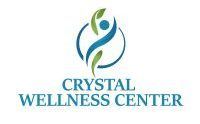Careers
Qualified Clinicals
- Clinical nurse specialist in mental health
- Licensed independent clinical social worker (LICSW)
- Licensed marriage and family therapist (LMFT)
- Licensed psychologist (LP)
- Licensed professional clinical counselor (LPCC)
- Mental health rehabilitation professional
- Nurse practitioner with psychiatric specialty (NP)
- Psychiatrist
Mental Health Practitioners
Mental health practitioners are people who provide services to adults with mental illness with emotional disturbance. Mental health practitioners are not eligible to enroll with MHCP; they must be under clinical supervision of a mental health professional and qualified in one of the following ways:
- Has completed at least 30 semester hours or 45 quarter hours in behavioral sciences or related fields and has at least 2,000 hours of supervised experience in the delivery of services to adults or children with:
- Mental illness, substance use disorder, or emotional disturbanceor
- Traumatic brain injury or developmental disabilities and completes training on mental illness, recovery from mental illness, mental health de-escalation techniques, co-occurring mental illness and substance abuse, and psychotropic medications and side effects
- Is fluent in the non-English language of the ethnic group to which at least 50 percent of the practitioner’s clients belong, completes 40 hours of training in the delivery of services to adults with mental illness or children with emotional disturbance, and receives clinical supervision from a mental health professional at least once a week until the requirement of 2,000 hours of supervised experience is met
- Is working in a day treatment program; or has completed a practicum or internship that requires direct interaction with adults or children served, and is focused on behavioral sciences or related fields.
- Has at least 4,000 hours of supervised work experience in the delivery of services to adults or children with any of the following:
- Mental illness, substance use disorder, or emotional disturbance, or
- Traumatic brain injury or developmental disabilities and completes training on mental illness, recovery from mental illness, mental health de-escalation techniques, co-occurring mental illness and substance abuse, and psychotropic medications and side effects
- Has at least 2,000 hours of supervised experience in the delivery of services to adults or children with any of the following:
- Mental illness, emotional disturbance, or substance use disorder, and receives clinical supervision as required by applicable statutes and rules from a mental health professional at least once a week until the requirement of 4,000 hours of supervised experience is met, or
- Traumatic brain injury or developmental disabilities; completes training on mental illness, recovery from mental illness, mental health de-escalation techniques, co-occurring mental illness and substance abuse, and psychotropic medications and side effects; and receives clinical supervision as required by applicable statutes and rules at least once a week from a mental health professional until the requirement of 4,000 hours of supervised experience is met.
- Has a graduate student internship or a bachelor’s or master’s degree and is a graduate student in behavioral sciences or related fields and is formally assigned by an accredited college or university to an agency or facility for clinical training.
- Has a bachelor’s or master’s degree with any of the following:
- Holds a master’s or other graduate degree in behavioral sciences or related fields
- Holds a bachelor’s degree in behavioral sciences or related fields and completes a practicum or internship that (1) requires direct interaction with adults or children served, and (2) is focused on behavioral sciences or related fields.
- A practitioner is qualified as a vendor of medical care if the practitioner meets the definition of vendor of medical care in section 256B.02, subdivision 7, paragraphs (b) and (c), and is serving a federally recognized tribe.
- In addition to the above criteria:
- A mental health practitioner for a child member must have training working with children.
- A mental health practitioner for an adult member must have training working with adults.
Certified Peer Specialist Services
CPS services include the following:
- Non-clinical, recovery-focused activities encouraging empowerment, self-determination, and decision-making, which are only provided by a CPS
- Activities that can address and contribute to the ARMHS team insights about feelings associated with stigma, social isolation, personal loss, systemic power dynamics and restoring one’s lifestyle following hospitalization, or other acute care services
Let's Connect and Grow Together!
Reach out today and start your journey toward a more fulfilling life!

